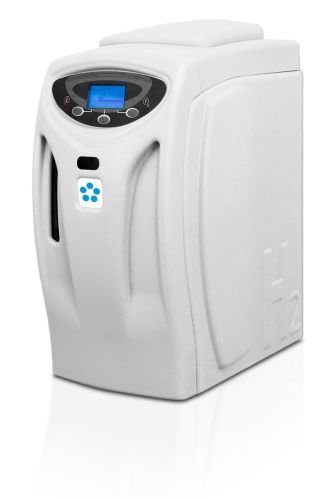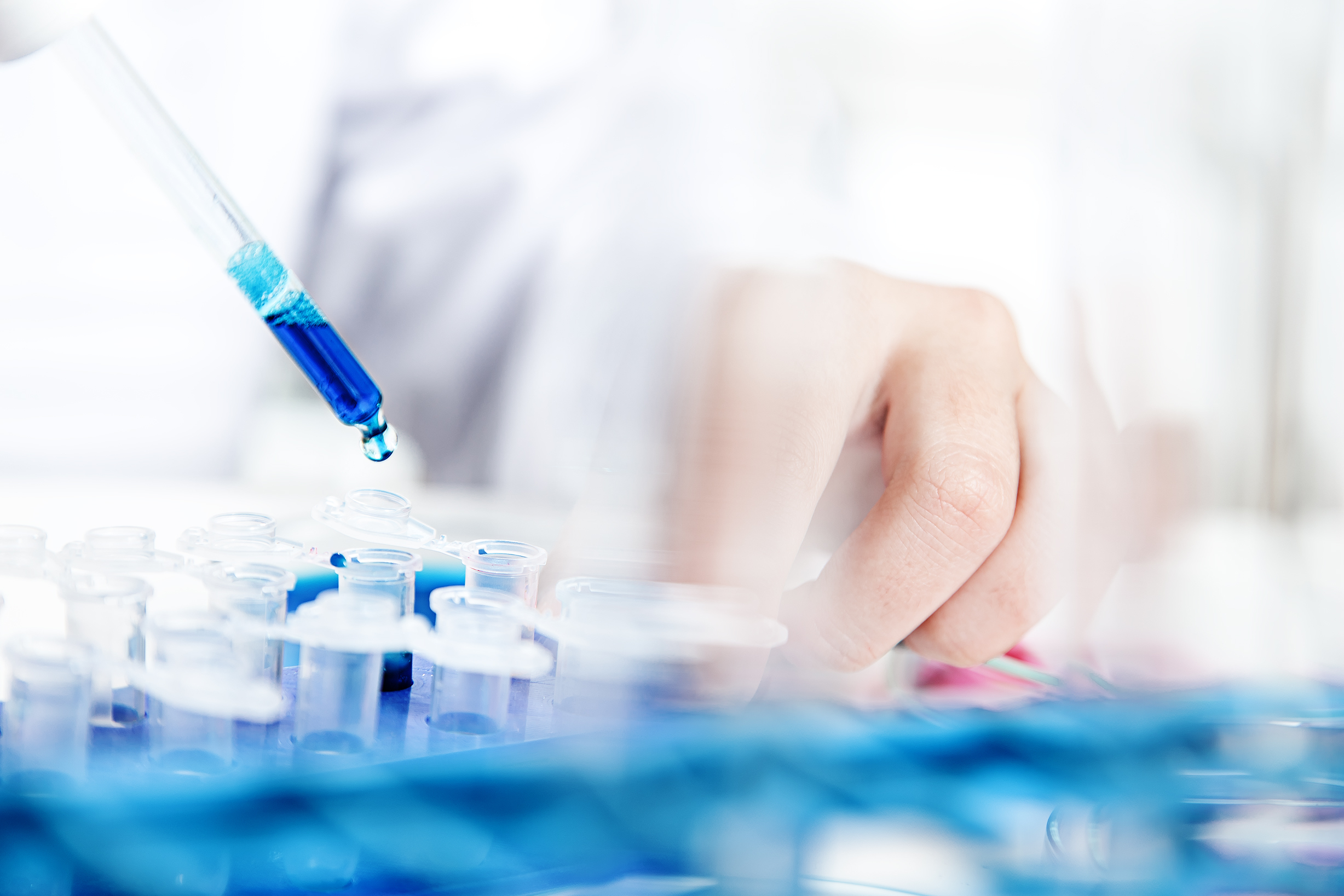H2-100 / H2-300 / H2-500 - hydrogen generators with a purity of >99.9996%
Constant and clean hydrogen
- Long-lasting electrolytic cell for outstanding reliability 24/7
- Hydrogen on-demand with consistent purity of up to 99.9996 %
- Regenerative permeation membrane dryer - no more desiccant cartridges, which reduces downtimes and costs
- Maintenance-free, offering uninterrupted service and reliability
- State-of-the-art control and safety alarms system
- Safe, reliable and more convenient alternative to helium gas in cylinders
H2-100D / H2-300D / H2-500D / H2-1000D - hydrogen generators with a purity of >99.99996%
Higher purity and lower dew point
- Long-lasting electrolytic cell for outstanding reliability 24/7
- Hydrogen on-demand with consistent purity of up to 99.99996 %
- 2-stage drying for the most pure hydrogen
- No more desiccant cartridges, which reduces downtimes and costs
- Suitable for high sensitive analysis
- Maintenance-free, offering uninterrupted service and reliability
- Safe, reliable and more convenient alternative to helium gas in cylinders
WHY OPT FOR HYDROGEN OVER HELIUM
Helium is an important carrier gas for most GC and GC-MS applications. However, helium resources have been dwindling for years as natural deposits are limited and non-renewable. This leads to significant price increases and long lead times. So alternative gas options are needed.
Hydrogen can work equally well as helium. Modern GC and GC-MS systems can be readily achieved and efficiently calibrated to use hydrogen as a carrier gas.
With a hydrogen generator laboratories can produce their own hydrogen in-house on demand and reduce the effects of helium shortages and rising costs and achieve reliable and reproducible chromatographic results.
Advantages of hydrogen instead of helium
- Higher speed for faster analysis without compromising separation efficiency
- Hydrogen as carrier gas is more sensitive as helium and allows lower temperature elution what extends the lifespan of the chromatorgraphie column
- Lower costs with high availability and the use of gas generators is possible
Hydrogen Generators - tailored for your high-precision needs
Laboratory applications such as gas chromatography usually require three gas types for the same instrument: nitrogen, zero air and hydrogen.
The new range of hydrogen generators perfectly complements the nitrogen and zero air generators, so that Chromalytic can now provide you with all three gas types from one company.
As an alternative to cost-intensive helium cylinders hydrogen generators only need deionized water and a standard electrical supply for continuous operation. The generators use a 100% titanium cell with a proton exchange membrane (PEM) to produce the hydrogen gas from deionised water. Dry filtration stages are used to dry the gas.
Chromalytic offers two types of hydrogen generators which differ in the drying method that has a direct influence on the dew point and the hydrogen purity:
1. H2-100, H2-200 and H2-300
Use a regenerative permeation membrane dryer for a purity up to 99.9996% optimally suited for carrier gas
2. H2-100D, H2-300D, H2-500D and H2-100D
Use a no maintenance cold dual dynamic regeneration system for higher purity up to 99.99996% and a lower dew point used for fuel and carrier gas
A single hydrogen generator can supply up to 20 GC instruments and is available in different flow rates to meet individual customer requirements.
The compact design allows the installation close to the instruments in the laboratory, eliminating the need for lengthy gas lines and ensuring the delivery of high-purity gas to the analysers.
A state-of-the-art control system, connected to a user-friendly touchscreen, consistently monitors crucial operational parameters to guarantee safe and consistent performance. Integrated sensors automatically shut down the generator in case of leaks, contaminated water, low water pressure, or overpressurization.
Our experts would be happy to advice you.
ECONOMICAL + DURABLE

Long-lasting electrolytic cell for outstanding reliability

No desiccant cartridges, downtimes and costs

High H2 purity for critical applications

Compact, space-saving design
INNOVATIVE + USER-FRIENDLY

Maintenance-free

Simple user interface and safety alarms system

Optimized for GC columns

Easy plug-and-play installation
Ideally suited for the following applications
Reliable and durable hydrogen source for analytical instruments including:
- Gas Chromatography (GC/GC-MS)
- Coupled Plasma Mass Spectrometry (ICP-MS)
- Elemental Analyzers
Technical Data
Hydrogen Generators
| H2-100 | H2-300 | H2-500 | |
|---|---|---|---|
| Max. volume flow | 100 ml/min | 300 ml/min | 500 ml/min |
| Purity | up to 99.9996% | up to 99.9996% | up to 99.9996% |
| Nominal pressure | 11 bar | 11 bar | 11 bar |
| Typical dew point | -23°C | -23°C | -23°C |
| Ambient conditions | +15 to +35 °C | +15 to +35 °C | +15 to +35 °C |
| Noise level at PN | 46 dB(A) at 1m | 46 dB(A) at 1m | 46 dB(A) at 1m |
| Nominal voltage | 230 V AC | 230 V AC | 230 V AC |
| Nominal frequency | 50 / 60 | 50 / 60 | 50 / 60 |
| Nominal power | 0.075 kW | 0.18 kW | 0.19 kW |
| Protection class | IP2X | IP2X | IP2X |
| Weight | 13 kg | 13 kg | 13 kg |
| Dimensions (L x W x H) | 230 x 370 x 507 mm | 230 x 370 x 507 mm | 230 x 370 x 507 mm |
| H2-100D | H2-300D | H2-500D | H2-1000D | |
|---|---|---|---|---|
| Max. volume flow | 100 ml/min | 300 ml/min | 500 ml/min | 1000 ml/min |
| Purity | up to 99.99996% | up to 99.99996% | up to 99.99996% | up to 99.99996% |
| Nominal pressure | 11 bar | 11 bar | 11 bar | 11 bar |
| Typical dew point | -73°C | -73°C | -73°C | -73°C |
| Ambient conditions | +15 to +35 °C | +15 to +35 °C | +15 to +35 °C | +15 to +35 °C |
| Noise level at PN | 46 dB(A) at 1m | 46 dB(A) at 1m | 46 dB(A) at 1m | 46 dB(A) at 1m |
| Nominal voltage | 230 V AC | 230 V AC | 230 V AC | 230 V AC |
| Nominal frequency | 50 / 60 | 50 / 60 | 50 / 60 | 50 / 60 |
| Nominal power | 0.1 kW | 0.2 kW | 0.22 kW | 0.4 kW |
| Protection class | IP2X | IP2X | IP2X | IP2X |
| Weight | 13 kg | 13 kg | 13 kg | 13 kg |
| Dimensions (L x W x H) | 230 x 370 x 507 mm | 230 x 370 x 507 mm | 230 x 370 x 507 mm | 230 x 370 x 507 mm |
Water specification
Deionized water quality:
Minimum: <1 μS/cm @25ºC - 1 MΩ-cm@25ºC - ASTM II
Empfohlen/Recommended <0.2 μS/cm @25ºC - 5 MΩ-cm @25ºC - ASTM II l/min

